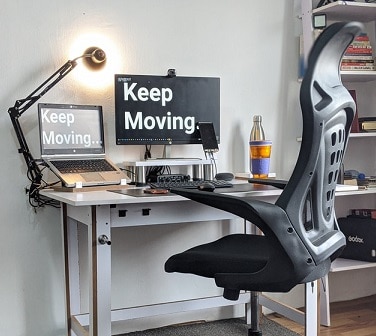Guest post by David Soffer
The imposition of a UK-wide lockdown in March was as difficult for businesses as it was unprecedented for the UK. Many businesses, industries and companies faced hardship, struggles and in some unfortunate cases, collapse.
The UK Government has since offered various helping hands, including their Job Retention Scheme, the Furlough Scheme and others and whilst this has helped millions of companies, jobs and people, many industries have had to adapt to what has for the moment become the ‘new normal’.
In our daily lives we have had to change some, if not most, of our past behaviours and habits. Some businesses, including those in construction, retail and some online industries have had to change little and have been able to carry on at an almost normal rate.
However, in a wider sense, many UK industries have been forced to change how they do things and how they go about their day-to-day activities.
Education and Childcare
By its very nature, the education and childcare sectors require contact between teachers, care-givers, guardians and children. However, coronavirus led to many nurseries across the UK having to close or severely restrict what they could offer.
Particularly in the case of younger children and early-years childcare, there is little to no substitute for the valuable time spent in an educational and child-friendly setting.
Thus, many nurseries were only able (as per government requirements) to provide for children of keyworkers, leaving many parents to take care of their children at home, whilst also working.
For children of school age, the challenges have been difficult but, in many cases, not insurmountable. Although there were provisions in place for the most vulnerable children as well as those of keyworkers, many schools across the country turned to online learning and teaching.
Although this has by no means been a replacement for classroom learning, e-learning, online resources and lessons have helped and also gave parents some much-needed breathing space, helping them work too.
Secondary and higher education, covering those over the age of 11 has, for many schools, proved itself to be more resilient than many had expected. Many secondary schools and large numbers of universities successfully taught and learned online.
Construction and House Building
Construction certainly slowed during the lockdown period of the pandemic, but never ceased. Some of the largest house builders in the UK such as Taylor Wimpey had to make some changes to how they worked, but the industry kept on moving.
So integral is the industry to the UK’s economy that the government and the Housing Secretary, Robert Jenrick were openly and actively keen to keep construction going throughout. With much of this industry taking place in the open or well-ventilated and widely open properties and sites, this does appear to have been a logical move.
Important to consider is that within the UK construction sector there are supporting businesses as well as those which may otherwise appear to ‘drive’ the industry. For example, companies that offer building acoustic testing are required to pass new builds as fit for living.
Therefore, keeping these supporting and complementary businesses going has meant they have been able to both assist the construction sector whilst also maintaining jobs and contributing economically.
Retail
The retail sector has been one of the hardest-hit sectors of the entire pandemic. Apart from the likes of travel and hospitality, retail sales slumped hugely through the lockdown period. High streets deserted and city centres empty, many of these businesses were forced to shut.
Only those deemed ‘essential’ such as food, medicine and a few other exceptions were able to stay open through the lockdown period.
However, although this industry has been hit hard, many of the businesses have been a lot more resilient than predicted. They have adapted to the changing conditions of retail; many have gone online to increase to whom they can offer their services and products and others have altogether moved, where possible away from city centres and into local high streets.
This has led to something of a resurgence of the local high street. With so many people working from home and therefore not in city centres, more people are shopping on their local high streets rather than doing so in city centres near their former primary workplaces.
David Soffer is co-founder of SEO consultants Tudor Lodge


